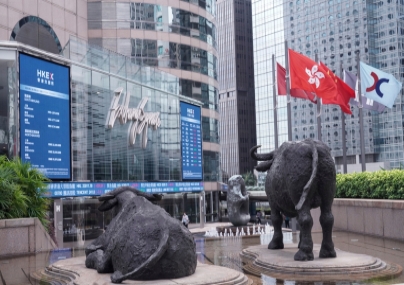China's central bank will allow companies and individuals in Tianjin Eco-City to conduct cross-border yuan transactions with Singapore, following in the footsteps of the Suzhou Industrial Park where a trial scheme was approved last month.
The People's Bank of China (PBOC) has released rules to banks to kick off the Tianjin trial, which will allow equity investment funds and individuals to make overseas investments in yuan. It will also let companies in the area take up yuan loans from banks in Singapore, three sources told Reuters on Tuesday.
One of the sources close to Chinese regulators said the central bank would announce the trial scheme on Wednesday, aiming to facilitate offshore yuan repatriation and enhance Chinese companies' competitive strength.
The Tianjin Eco-City, launched in 2007, is a joint project of the Chinese and Singaporean governments that aims to develop a template for environmentally friendly cities.
The initial quota for cross-border yuan lending between the Tianjin Eco-City and Singapore this year is 2 billion yuan ($322 million), the source added.
"We have already started to cultivate Tianjin corporate clients actively for cross-border lending and bond issuance business," said an official at a Chinese state-owned bank's Singapore branch.
Companies that will be permitted to conduct cross-border yuan transactions with Singapore need to register in the Eco-City, while banks involved include lenders in Singapore and those set up by the Tianjin government.
An official from the Tianjin Eco-City confirmed it would hold a news conference with the PBOC on innovative cross-border yuan business on Wednesday.
The PBOC Tianjin branch could not be reached for comment.
The PBOC Nanjing branch announced last month it would let eligible companies and individuals in the Suzhou Industrial Park (SIP) conduct cross-border yuan transactions with Singapore.
Competition to become the next offshore yuan centre after Hong Kong has intensified as China accelerates efforts to promote its currency to regions beyond Asia.
It took almost 10 years for China to set up another yuan clearing bank after Hong Kong, but such banks have sprung up in the past year as Beijing has stepped up efforts to facilitate yuan usage in trade settlement and investment.
Beijing assigned yuan clearing banks for London and Frankfurt in June, followed by announcements it would set up yuan payment systems in Luxembourg, Paris and South Korea.
Singapore was granted a yuan clearing bank in February 2013 and has an investment quota of 50 billion yuan to enter China's domestic capital market under the Renminbi Qualified Foreign Institutional Investor (RQFII) scheme.


